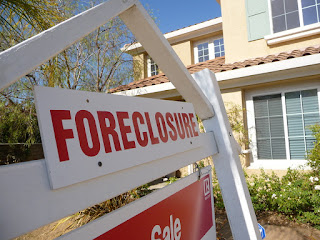When a homeowner has defaulted on their mortgage, it is common that
they are seeking any way possible to avoid foreclosure of their property. One
method of avoiding foreclosure that is commonly discussed is called a “deed in
lieu of foreclosure.” While there can be benefits to using this method of
foreclosure avoidance, it may not always be the best possible option for a
homeowner. All options should be carefully weighed based on benefits and costs
and considering the specific situation and needs of an individual homeowner.
What is a deed in lieu of foreclosure?
A deed in lieu of foreclosure is a legal instrument in which a
mortgage borrower voluntarily conveys ownership interest to the lender. Once
the homeowner turns over ownership rights, they are released from their
mortgage debt. A deed in lieu of foreclosure can have certain benefits for
homeowners as the transfer is voluntary, the defaulted debt is forgiven, and
the lengthy and stressful foreclosure process can be avoided. However, the
homeowner still loses their property and their credit score will be
significantly affected as the mortgage was settled for less than the originally
agreed-upon amount.
In addition, the mortgage balance often exceeds the value of the home,
and a lender may not agree to a deed in lieu of foreclosure. If a lender does
agree to a deed in lieu, it is in spite of the discrepancy between the balance
and the property value and is often because it allows them to take ownership of
the property without pursuing a foreclosure action in court. However, in this
situation, the prior homeowner will risk a substantial taxation by the IRS due
to forgiveness of the balance of the debt.
The deed in lieu agreement is hard to get, especially when
the buyer demands a price too far below fair market value and when the bank
believes that there may be other liens on the property. It is
important to remember that simply exploring the option of a deed in lieu of
foreclosure does not create an obligation to convey ownership. Instead, both
the lender and the borrower have the right to withdraw from the negotiations
prior to the signing of a final agreement. If a deed in lieu agreement cannot
be arranged, there are other options to pursue to potentially avoid
foreclosure.
New York's Home Equity Theft Prevention Act
In 2006, the New York legislature passed the Home Equity Theft Prevention Act (HETPA)1 to
protect the interests of homeowners in the sale of their homes when they are in
default or foreclosure. When facing possible foreclosure, property owners are
often in a vulnerable position and buyers may easily take advantage of them and
acquire ownership of the distressed property through abusive or fraudulent
means. For this reason, HETPA sets out strict requirements for contracts in
this situation. If the requirements are not met, the seller could have up to
two years to rescind the contract and reacquire ownership interests in the
property in question.
For several years following the enactment of HETPA, many mortgage
lenders were not clear on whether the contract requirements and the possible
two-year rescission period applied to deeds in lieu of foreclosure, as there
was no explicit exclusion. For this reason, many lenders were hesitant to
accept this type of deed instead of proceeding with a foreclosure. In 2011, the
banking section of the New
York Department of Financial Services published a letter2
indicating they did not interpret HETPA as applying to deeds in lieu of
foreclosure. Despite this letter, many New York mortgage lenders may still be
reluctant to accept this alternative to foreclosure.
Contact an experienced New York foreclosure
attorney
Even if a deed in lieu of foreclosure is not the right option for you,
there are other alternatives to avoiding foreclosure, such as a loan
modification or a short sale. Experienced Long Island foreclosure lawyer Ronald D. Weiss has
nearly three decades of experience assisting homeowners with foreclosure
solutions, so please call today at 631-296-0912 if you need assistance.
References:






